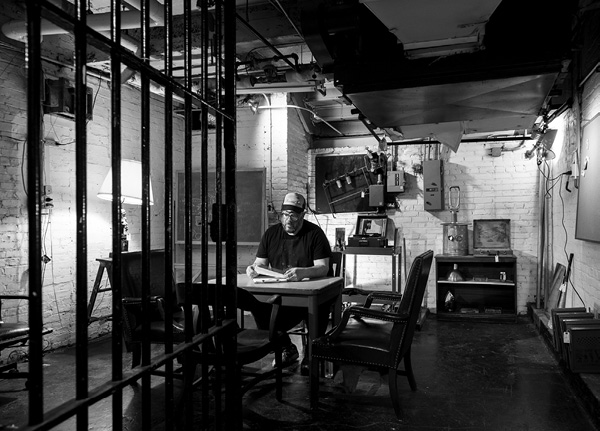
BASEMENT TOURS
first performed on April 16, 2016
Jamaica Center for Arts and Learning, Queens, NY
performed six times in 2016
ED WOODHAM
Brooklyn, NY
141952215e141952215d141952215w141952215o141952215o141952215d141952215h141952215a141952215m141952215@141952215g141952215m141952215a141952215i141952215l141952215.141952215c141952215o141952215m
edwoodham.com
BASEMENT TOURS
ED WOODHAM
This is a photo of me at “The Museum of Objects”—curated objects selected from the debris and records that accumulated over 60 years at the Jamaica Center for Arts and Learning—before one of six performances of “Basement Tours,” a tour into a subterranean underworld of secrets and wonder in the 100-year-old building. Audience members experienced how the psycho geography of space alters subconscious thoughts and emotions, observed discarded strange objects steeped in historic narrative, and were amazed at the bizarre configurations of decades of infrastructure.
This was part of a year-long commission that transformed into a residency as part of Jamaica FLUX 2016, co-curated by Heng-Gil Han and Kalia Brooks at the Jamaica Center for Arts and Learning (JCAL) in Queens, New York. It began with a tour of the 100-year-old building, which led to the discovery of the basement—full of many years of collected debris. “This is prime real estate for artists’ studios,” I told the executive director, Cathy Hung. Hung, together with curators Han and Brooks, facilitated a path for my project to develop organically as I slowly, and gently, embedded myself into the JCAL institution. They introduced me to staff, the board president, and members of the JCAL and Jamaica, Queens communities, who provided resources and encouragement but also questions, scrutiny, and numerous discussions.
At the beginning of the residency, I created a survey (eventually narrowed down to ten questions) that was distributed to the JCAL, board, and mailing list and the general public about how the center could best serve the needs of the community. The JCAL staff were vital participants in creating the questions on the survey, as well as essential in its distribution throughout the community. The cleaning of the JCAL basement was a long, arduous process of group discussions, organization, collaboration, patience, sorting, cleaning, and removal of debris to make space for artists’ studios. Two 30-yard dumpsters were filled with detritus from the basement. Artists are currently working in the newly created studios in the basement and a social justice arts residency is in the research and planning stages.
My relationship with both the basement and JCAL was less institutional critique and more maintenance of an institutional space underused and under-imagined. During the process of my residency there were discussions and mutual critiques of our respective priorities and focus—at times both difficult and frustrating for everyone.